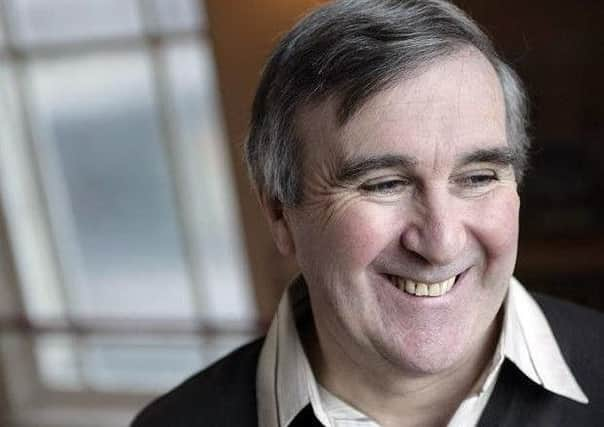Gervase Phinn - on why teaching is still a great profession


“Education is the most powerful weapon which you can use to change the world.” So said Nelson Mandela.
If this is true then you might assume teaching would be a sought after career and that teachers themselves would be revered. But the reality in this country is not quite so idealistic.
Advertisement
Hide AdAdvertisement
Hide AdAlmost a third of state school teachers quit their profession within five years of qualifying according to Government figures revealed last autumn. Teachers’ leaders say excessive workloads, “high-stakes” assessments and the constant changes within education are driving many of them to leave.


On top of that a report published this week by the Commons Education Select Committee warns that England’s schools are suffering from worsening teacher shortages, particularly in key subjects such as physics and maths. MPs have criticised the Government for failing to deal with the problem and missing recruitment targets for the past five years in a row.
As report cards go it’s not exactly passing with flying colours and former teacher turned best-selling author Gervase Phinn is among those concerned by the growing pressure being heaped on school teachers. “One in five teachers leave the profession in the first five years of teaching, and in my opinion it’s due to the lack of encouragement, support and training they receive in those first few years that are crucial for them to develop as a teacher.
“Instead of focusing on league tables, targets and paperwork, teachers should be encouraged to teach and feel good about their work. I don’t think we have that at the moment.”
Advertisement
Hide AdAdvertisement
Hide AdPhinn, who is also a former school inspector, will be discussing this and the state of our education system tonight at a sell-out lecture at Leeds Trinity University, of which he is an alumni.


“Samuel Wilberforce, son of the great emancipator William Wilberforce, said teachers play a hugely important role in society because they can change lives and he was absolutely right. The problem is that many teachers today face a hard time and education in this country seems to be in a constant state of flux.”
When it comes to schools, Phinn - once dubbed the “James Herriot of education” - knows what he’s talking about. He started out as a teacher in Doncaster before being head-hunted by the schools inspectorate. He became Principal Education Officer for North Yorkshire, spending more than a decade working as a school inspector in the halcyon, pre-Ofsted, days before becoming a successful author.
He’s critical about the introduction of the English Baccalaureate (EBacc), the school performance indicator linked to GCSEs. “Instead of previously having five core subjects there will now be seven compulsory subjects which means there will be little space for art, music and drama.
Advertisement
Hide AdAdvertisement
Hide Ad“But access to the arts is crucial for creative thinking. Is education just utilitarian, is it just about getting jobs? Of course this is important but to marginalise things like art, music, poetry and drama is a mistake in my view.
“We need to have a national curriculum but it needs to be much more flexible so that teachers have the freedom to be creative and use their imagination. Teachers are leaving and it’s not because of the children it’s down to the pressure and the amount of paperwork.
“I was talking to a primary school teacher who has been reading to children for 32 years - why does she have to fill in a lesson planner?”
He says the recipe to a successful school doesn’t have to be difficult. “I visited a Catholic school and it was brilliant. It had great results, the children came from all kinds of backgrounds and they paid attention to the details. There was no graffiti or litter and the headteacher told me ‘we love to learn and we learn to love’ - that was their mission statement. They revelled in the school’s achievements and the children were all treated as individuals.”
Advertisement
Hide AdAdvertisement
Hide AdHe believes it highlights the importance of good headteachers. “You can take a failing school and with good, dynamic leadership turn it into a successful one.”
At the same he recognises there is a yawning gap between successful schools and those that struggle. “If you take a good school in North Yorkshire in an affluent area and compare it with a struggling inner-city school where a lot of children come from poor backgrounds, they are completely different worlds. There are some schools that really are challenging I think those teachers deserve medals.”
As a writer Phinn is best known for his Dales books but he has also published children’s fiction, along with poems and plays and he regularly holds creative writing workshops in schools.
“I went to Leeds City Academy and did a poetry workshop and at the end this little lad who was 11 came over and said ‘may I give you a hug?’ I asked him why and he said ‘I’d just like to give you a hug because I thought your poems were wonderful.’
Advertisement
Hide AdAdvertisement
Hide Ad“He wanted to buy a copy of my book and I told him he could have one. I started talking to him and he said he was from Romania. He said his family had lived in Leeds for two years and that he loved it there. He told me his father cleaned cars and his mother worked in an office, but he said he didn’t want to clean cars he wanted to be a lawyer.
“I asked him what he needed to do to become a lawyer and he said ‘to do my homework and work hard’ - and that lad will go on and be a lawyer, I’m convinced of it.”
Phinn is acutely aware of the important role parents play in their children’s education. “If you spend half an hour reading with a young child every night that will bear fruit for a lifetime. It comes back to children’s backgrounds. You want parents that are encouraging and supportive who talk to their children and take them to pantos and libraries.”
Phinn taught in comprehensive schools back in the 1970s but isn’t necessarily against Theresa May’s controversial plans to reintroduce grammar schools. He’s more interested in having a stable education structure that allows both teachers and pupils to flourish.
Advertisement
Hide AdAdvertisement
Hide Ad“We need a system where there’s more support for teachers, where they can visit other schools and develop their skills and ideas. If you go to Northern Ireland it’s really competitive and to become a teacher you need the equivalent A-Levels that you do to be a doctor.”
Despite such concerns he’s optimistic about the future of teaching and education in this country. “I’m upbeat and I still believe teaching is the best profession despite the fact it can be enervating and demanding.
“A good teacher will still get stopped in the street and thanked. Tony Blair gets pilloried but he was right, you always remember a good teacher because they change lives.”